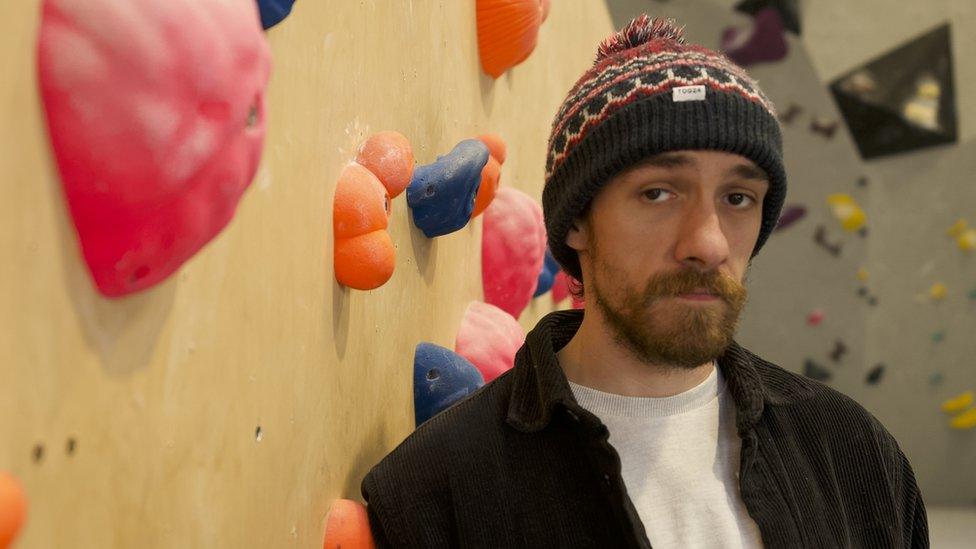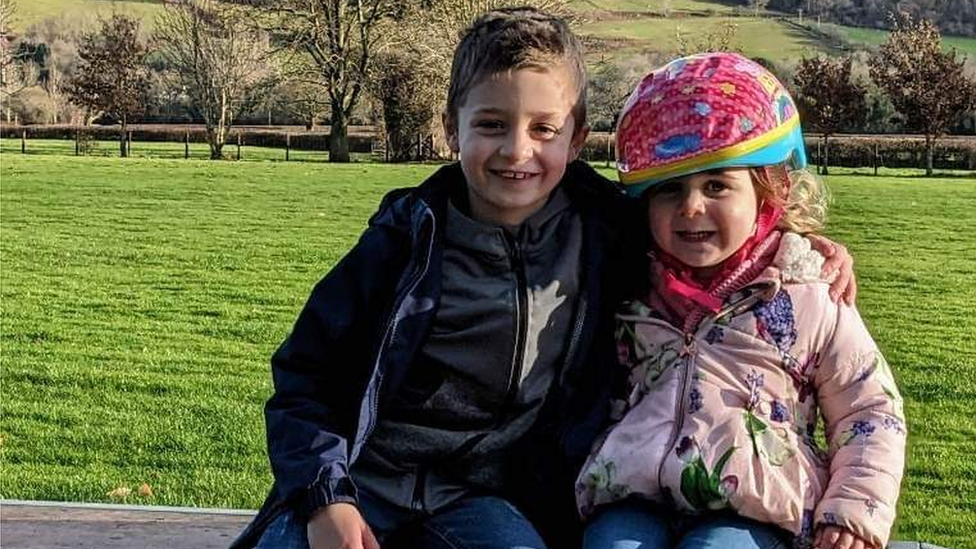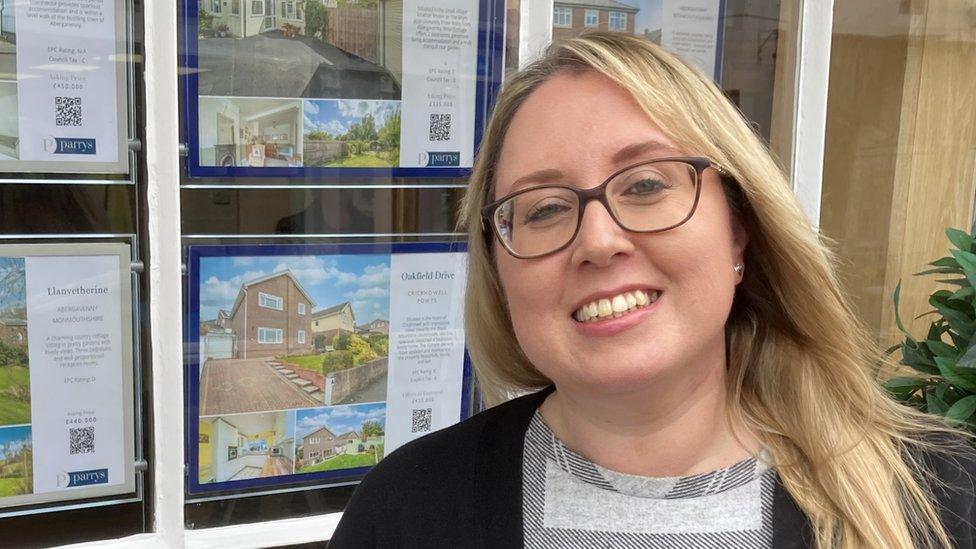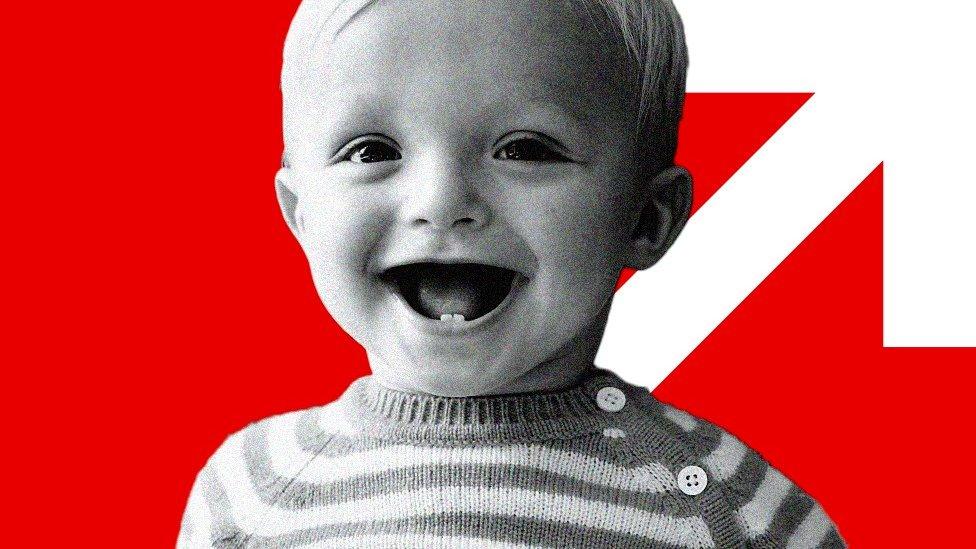Childcare costs put parents off having more children
- Published

Danny Carter said he and his partner have delayed having a second baby due to childcare costs
Childcare costs in Wales have priced some parents out of work and stopped them from having more children.
The Welsh government is under pressure to bring its childcare plans into line with the UK government's in England.
Parents there will get up to 30 hours a week of free childcare for children as young as nine months from 2025.
In Wales, this is for three and four-year-olds, but a minister said the Welsh government was "rolling out" an expansion to include two-year-olds.
Danny Carter, a climbing centre manager in Cardiff, said he worried "constantly" about paying for childcare.
"Our budget is a lot tighter than it's ever been, but we're earning more than we've ever earnt," he said.
The 32-year-old said he and his partner had recently got "significantly" higher paying jobs, but as it meant more days in nursery for their two-year old son, ended up much worse off.
They have gone from paying £200 a month for one day a week to £900.
"It's a lot of money, it's a lot more than our mortgage - it's our biggest expenditure by far," he said.
According to children's charity Coram, childcare prices have risen faster on average in Wales than in England and Scotland - with 50 hours a week for children under two up more than 4% since 2021, external.
Mr Carter said his son's nursery had recently announced that fees would go up from £63 to £70 per day from April.
"There's no treats anymore, we're living hand to mouth," he added.
"It shouldn't be the case. We're earning £60,000 between us. We shouldn't be so skint and worrying if we can afford food one week or next.
"We can't plan on having a second child now until our son is three years old and eligible for free childcare and the money worries ease up a bit.
"It's an enforced age gap, we've always wanted to have more children, but we couldn't afford to have another kid now without some more support."

Liz Jeffries has two children - Dylan, eight, and Elsie, two
Education and childcare are devolved, so any potential changes to childcare support in Wales will be a matter for the Welsh government.
Finance Minister Rebecca Evans said the Welsh government had already budgeted for an extra 4,500 families with two-year olds to receive free childcare hours next year.
The Welsh government is set to receive an additional £180m after Chancellor Jeremy Hunt announced plans to expand free childcare hours in England.
Ms Evans added: "Obviously we want to do more in this space. The question is, will we have enough funding to move further and over what period?"
She said ministers would need to sit down and "look at the figures" to work out if there could be any further expansion to free childcare in Wales.
Liz Jeffries, 38, has wanted to pick up more hours at work since her daughter, Elsie, turned two last year.

Liz Jeffries has had to turn down extra work because she would end up worse off
But the mother-of-two, who works part-time as an administration manager for an estate agent in Abergavenny, Monmouthshire, said she would only take home about £5 a day extra after she accounted for childcare.
"I really wanted to do it, but my decision [to turn down the work] was purely based on financial reasons.
"Childcare is just so expensive. The situation irritates me because I know I can give more to my current employer but I'm being held back by the childcare system.
"I do worry it will affect my career progression because I'm not here as much."
Ms Jeffries said her daughter would qualify for the Welsh government's existing 30-hour free childcare scheme from September, but more help was needed.
She added: "From other people I've talked to about this as well, there's a lot of people out there, all parents, who are being offered more work but can't take it up because of childcare."
Join BBC Wales' Business Correspondent Huw Thomas for a live question and answer session on Wales' childcare at 13:45 GMT on BBC Wales News' Facebook, external page and at bbc.co.uk/walesnews

A SPECIAL SCHOOL: Behind the scenes at a school like no other
ICONIC WELSH PEOPLE, PLACES AND THINGS: Kiri Pritchard-McLean unearths the best clips from the BBC Wales archive

- Published8 April

- Published15 March 2023

